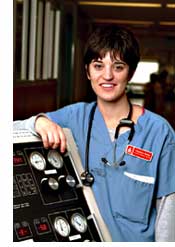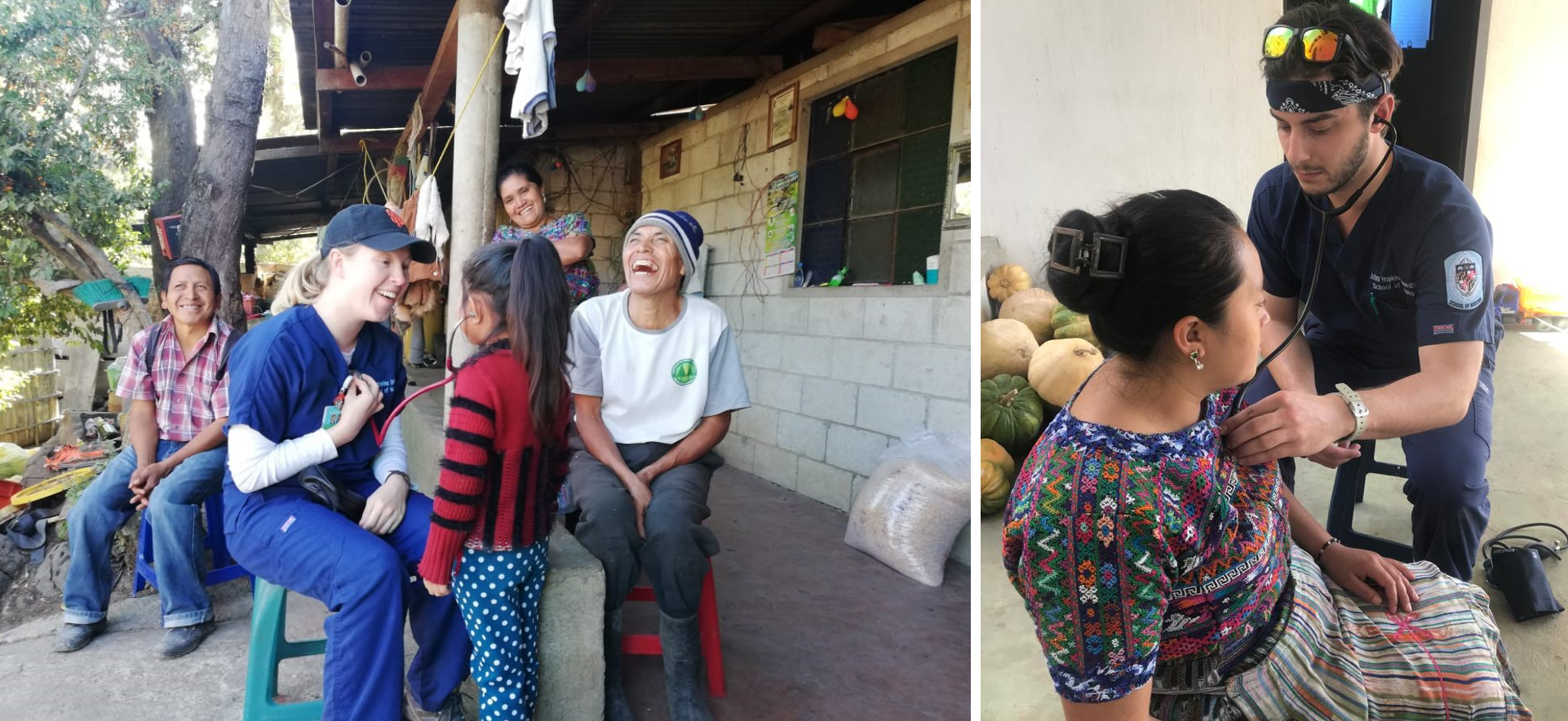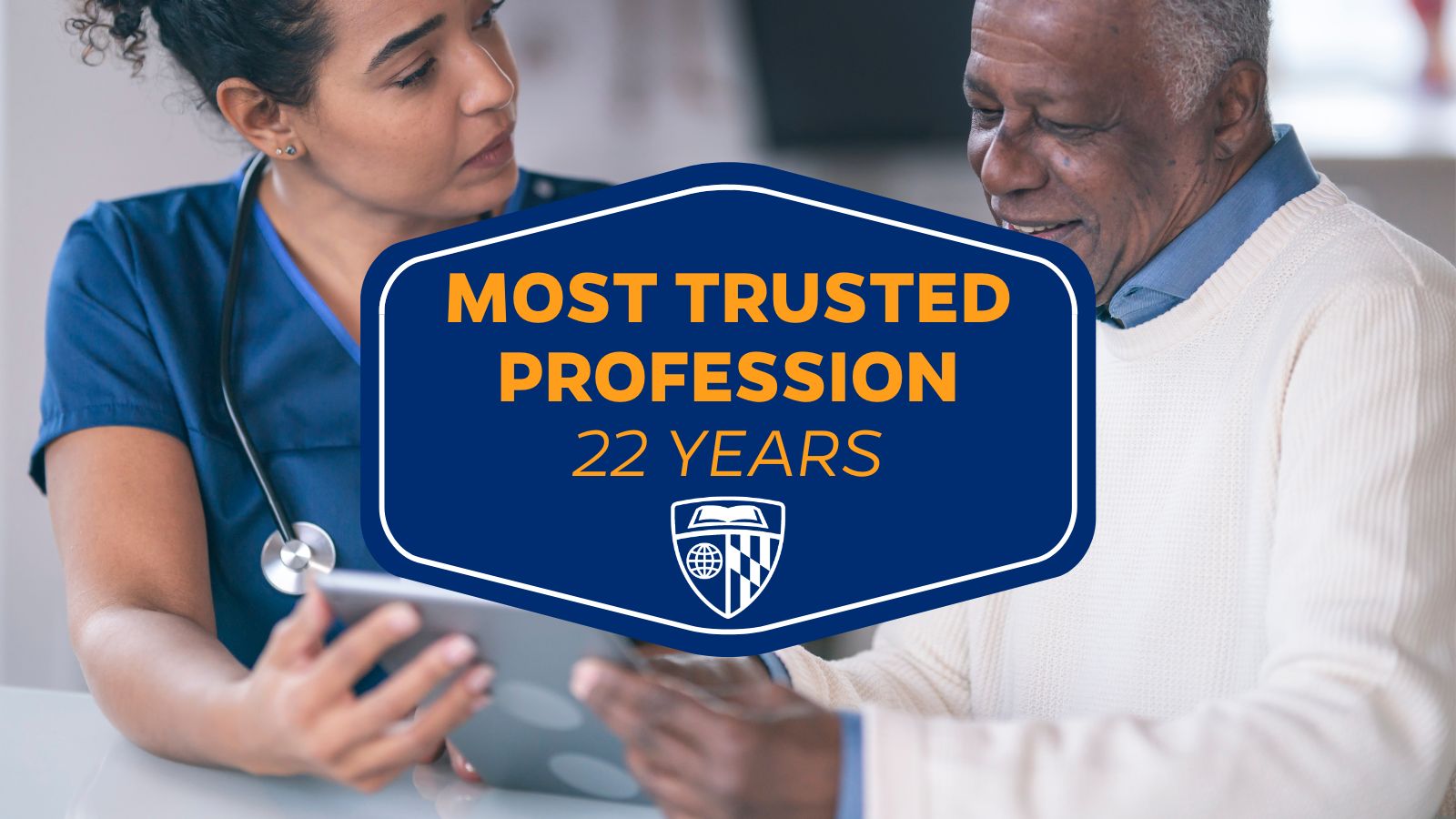
I moved 3,000 miles for nursing at Johns Hopkins, and as I prepare to complete the accelerated program this year, I have absolute conviction that I made an excellent choice for a profession.
Nursing was not my first career choice. Initially equipped with an MPH from University of California, Los Angeles, I went to work in an impoverished, medically underserved community in Long Beach. After two rewarding years, I began to sense that something was missing from my professional life. My work was predominantly community based and, while it gave me a strong sense of health care’s “big picture,” I missed providing direct patient care.
I began searching for a clinical role that would enhance the skills I had and whose philosophies were similar to my own. I discovered that nurse practitioners focus on understanding the patient’s lifestyle, providing education, and incorporating preventive measures into the patient’s daily regimen. This role was a perfect fit, and Johns Hopkins emerged as the best place to help me achieve my goal.
As a student in Hopkins’ 13-month accelerated program, the theory I’ve learned in the classroom has been tested, modified, and augmented by some amazing clinical experiences. I remember one patient in particular from my rotation in the pediatric unit. This child had a liver transplant and was frustrated and depressed about being in the hospital for so long. Sensing he needed an outlet, I spent lots of time talking with him, helping him articulate his feelings of anger and helplessness. The experience drove home the point that nurses truly need to balance the emotional and physical needs of a patient in order to be effective.
I’ve also learned that today’s nurses need to be extremely skillful in health technology. I think of a patient I encountered during our Med-Surg rotation, who had advanced pancreatitis and gallstones. I needed to know how to do everything from administering his medications through a J-tube and nutrition through a feeding tube, to monitoring his indwelling catheter for infection, to performing a complicated dressing change for a deep abdominal wound.
The most challenging aspect in the accelerated program has been finding ways to balance schoolwork and 12-hour clinical shifts. One thing I’ve really missed is indulging my passion for traditional Greek folk dancing — something I hope to return to when I finish school.
After graduation I plan to work on a cardiac progressive care unit at Hopkins for a year and then transfer to its emergency department. I also plan to pursue a master’s degree in nursing at Hopkins to fulfill my dream of becoming a family nurse practitioner. Ultimately, I’d like to become the CEO of a non-profit, community clinic, serving the medically underprivileged in a child-family-community model of care.
—Demetra Bastas ’03
 Global Service Learning: Guatemala
Global Service Learning: Guatemala Guatemala Re-visited: Rainwater Project Shows Value of Service-learning Trips
Guatemala Re-visited: Rainwater Project Shows Value of Service-learning Trips You’re Welcome
You’re Welcome My First Teachers in Nursing School Weren’t Nurses
My First Teachers in Nursing School Weren’t Nurses Nursing Named Most Trusted Profession for 22nd Consecutive Year
Nursing Named Most Trusted Profession for 22nd Consecutive Year






